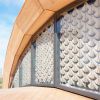Start-ups: Inspired by nature
Many young companies in Germany are using bionics concepts to develop new products and solutions. Let’s meet three of them.
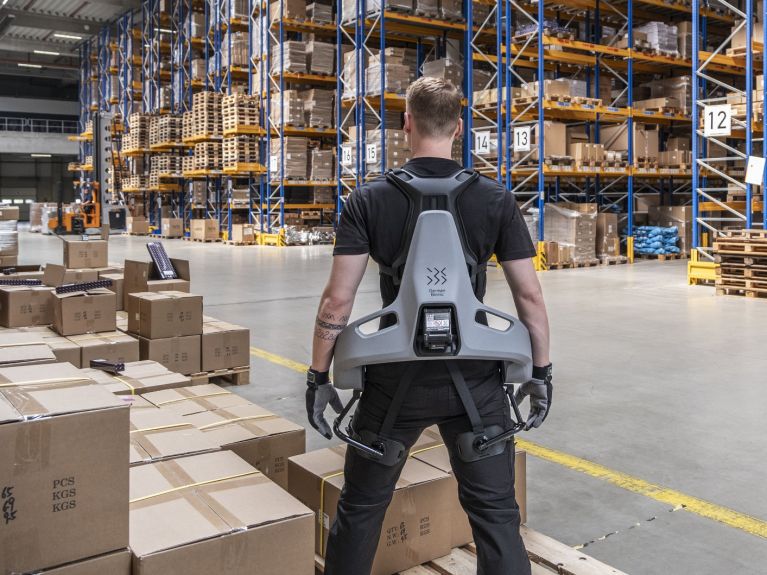
How can heavy work be made easier?
There are many aspects of the modern work environment where physically demanding activities still prevail. People still frequently need to lift heavy weights, be it in logistics, industrial production or the care sector. German Bionic, founded in Augsburg in 2017, has developed portable robotic systems – so-called exoskeletons – to address this issue. These robotic suits support natural activities like lifting, walking or working in a stooped position.
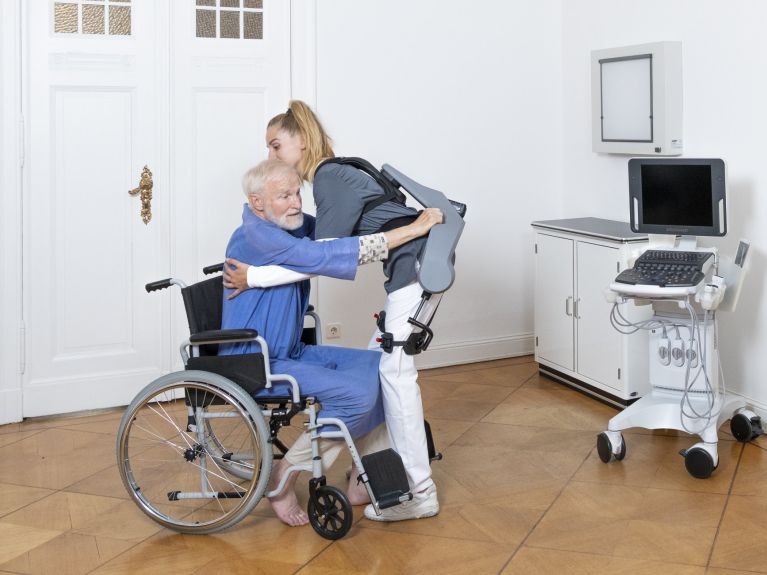
Special sensors record the user’s posture, number of steps and stride length and can actively assist with movement. The high-tech devices are also networked with each other and are continuously learning to improve thanks to AI.
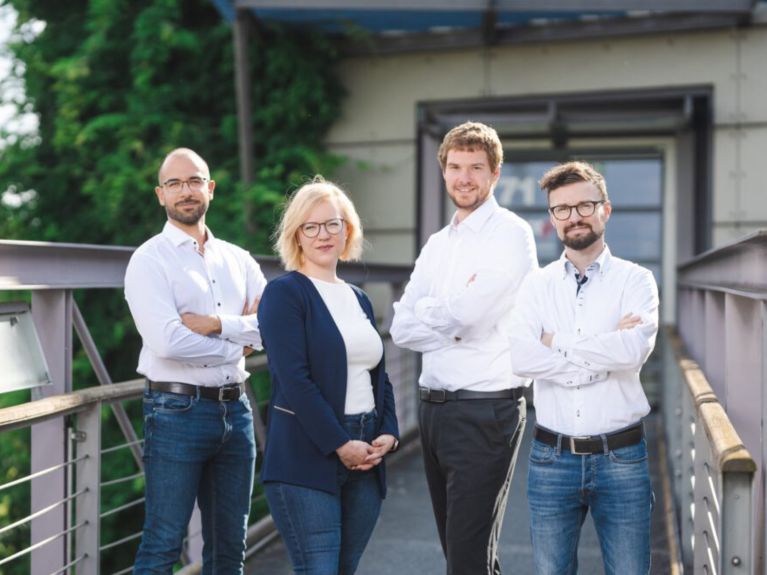
How can surfaces be better protected?
Materials used in medical technology, the automotive industry or the consumer sector often need to be coated at great expense, for instance to stay clean or prevent glare. The company Fusion Bionic in Dresden is now offering a simpler solution for functional surfaces: Micro- and nanostructures for specific functions are applied directly onto the materials using a special laser process.
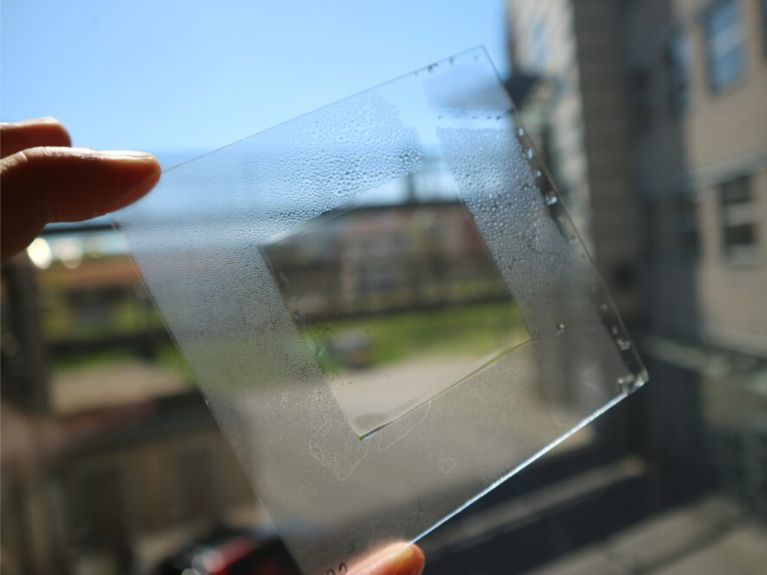
This gives the surfaces water-repellent, glare-free or low-friction properties. Fusion Bionic took its cue for this from nature: A lotus leaf’s structure, for example, allows water to fall off in droplets, a scallop shell is self-cleaning and a moth’s eye is a model for reduced lens flare. The company is a spin-off from the Fraunhofer Institute for Material and Beam Technology IWS and in 2024 won the Fraunhofer Start-up Award.

How does artificial skin feel?
Everyone acknowledges the importance of touch in experiencing our environment. Until now, only human skin was capable of real feeling. But now the Munich start-up Tacterion, a spin-off from the German Aerospace Centre founded in 2015 by brothers Michael and Daniel Strohmayr, has developed sensor systems that immediately detects mechanical impacts.
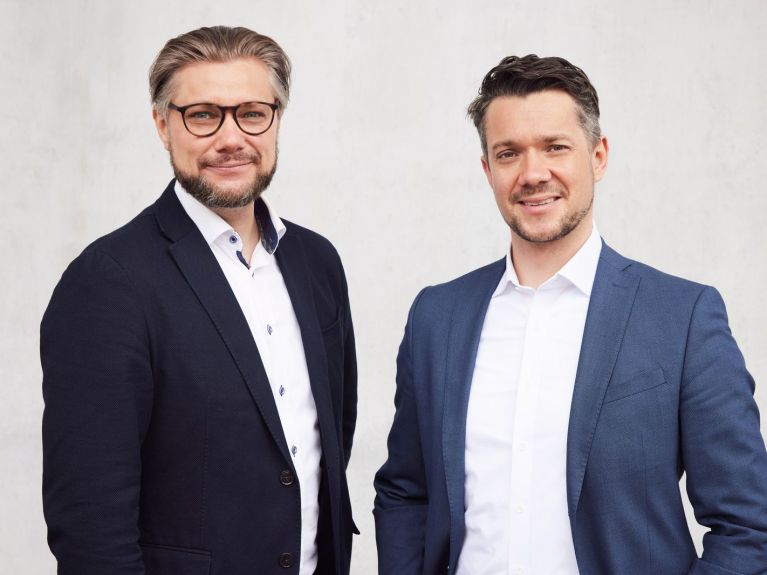
The sensors can for instance be attached to robots, machines or portable electronics to detect information such as pressure, touch or deformation. This makes tasks in robotics or industrial automation easier and facilitates cooperation between humans and machines.


